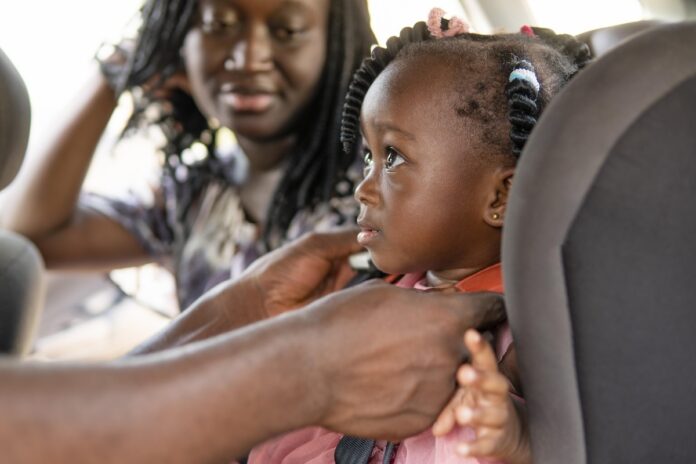Over the past 25 years, 970 children have died as a result of heatstroke because they were trapped in a car, according to the National Highway Traffic Safety Administration (NHTSA). And just last year, 23 young lives were lost when they were left in vehicles. As the summer season gets underway, the NHTSA wants to remind us to be vigilant about preventing hot car deaths. Even if we don’t have young children, our quick actions could save someone else’s life. So know the facts and follow some of these tips to stay vigilant this summer.
- A child’s body temperature rises three to five times faster than an adult’s. When a child is left in a vehicle, that child’s temperature can rise quickly — and the situation can quickly become dangerous.
- Heatstroke begins when the core body temperature reaches about 104 degrees.
- A child can die when their body temperature reaches 107 degrees.
- When temperatures are in the 60s, a car can heat up to more than 110 degrees, according to the National Highway Traffic Safety Administration.
- Parents should never leave their children alone in a car. Rolling a window down or leaving the air conditioning on while the motor runs is not enough to keep them safe.
- Young children can’t express they are too hot or thirsty, and “often they don’t have the awareness of how to cool themselves off.
- If you see a child in a car suffering from heat stroke, you should immediately remove the child from the vehicle and take her or him into a nearby air-conditioned building. If you can’t open the car, call the police immediately.
- If you notice that the child is either lethargic or unresponsive, then, of course, you want to call 911. But while you’re waiting you can also cool the child down by pouring cold water over them or fanning them. You just want to get them out of the hot environment as soon as possible.”
Sometimes, when kids are left behind in cars, it’s because parents have forgotten they are there. Luckily, there are steps you can take to remind yourself. Among them:
- Make a habit of checking your vehicle from front to back before you lock the door and leave your vehicle.
- Place something you know you’ll need, such as a purse or briefcase, in the back seat of the car so you’ll remember to see your child there, too.
- Leave a note in your car where you know you’ll check it before leaving.
- Ask your childcare provider to call you if your child does not show up. Because, in some cases, a child may be left in a vehicle or bus carrying many children.
- The risk of hot car death is just as high when children have access to unlocked car doors in their driveway or parking lot.
- Noe says it’s important to teach your kids not to play in or around cars.
- Make sure to keep your car doors and trunk locked and to store your car keys so they’re out of your child’s reach.
Furry family members inside a hot car are in just as much danger as your kids. Your pets could suffer organ damage or die after being left in a hot vehicle, according to the Humane Society of the United States. Call the police or a shelter if you see an animal that may be suffering from the heat inside a parked vehicle.
What happens during heat stroke?
Heat stroke occurs when your body can’t control its temperature, which can rise to 106 degrees or higher within 10 to 15 minutes, says CDC. Young kids are at high risk because their bodies heat up quickly. When a child’s temperature reaches 107 degrees, it can be fatal, says NHTSA. On average, one child dies every 10 days in the U.S. due to heat stroke after being left unattended inside of a car, according to Safe Kids Worldwide.
Signs that someone may be suffering a heat stroke are dizziness, a rapid pulse and skin that is hot and dry without signs of sweat.
Reprinted with permission from The Nation’s Health, APHA.






